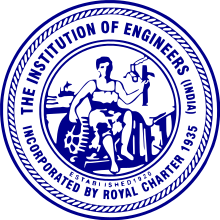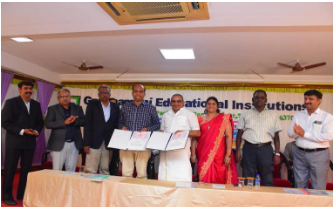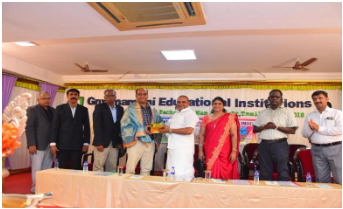Established in 2007 with an initial intake of 60 students, the Department of Master of Computer Applications is committed to providing a transformative educational experience. Our highly collaborative and experienced faculty equips graduating engineers with the tools for exceptional performance, enabling them to thrive in the dynamic digital landscape.
The Department boasts state-of-the-art computing facilities, including three labs equipped with 120 high-performance workstations and the latest software. Students enjoy free, unlimited internet access. To facilitate practical learning, laboratory hours have been extended, allowing students to work on independent projects and gain valuable hands-on experience. The department is staffed by a team of highly qualified faculty and technical staff. The curriculum and syllabus are continuously updated based on feedback from industry partners, alumni, and current students, ensuring relevance and quality. To enhance students' technical writing and communication skills, they are encouraged to contribute technical articles on topics to the department magazine."
Students are actively encouraged to participate in technical seminars and competitions, both on and off campus, fostering their professional development and enhancing their leadership and communication skills. To refine technical communication skills, students contribute articles to the department magazine. The Department has established strategic partnerships through MoUs with leading organizations. Through the Campus Connect Program, providing industry-relevant training and placement assistance. These partnerships equip students with the technical and soft skills necessary to meet the growing demands of the IT industry and enhance student placement outcomes.










